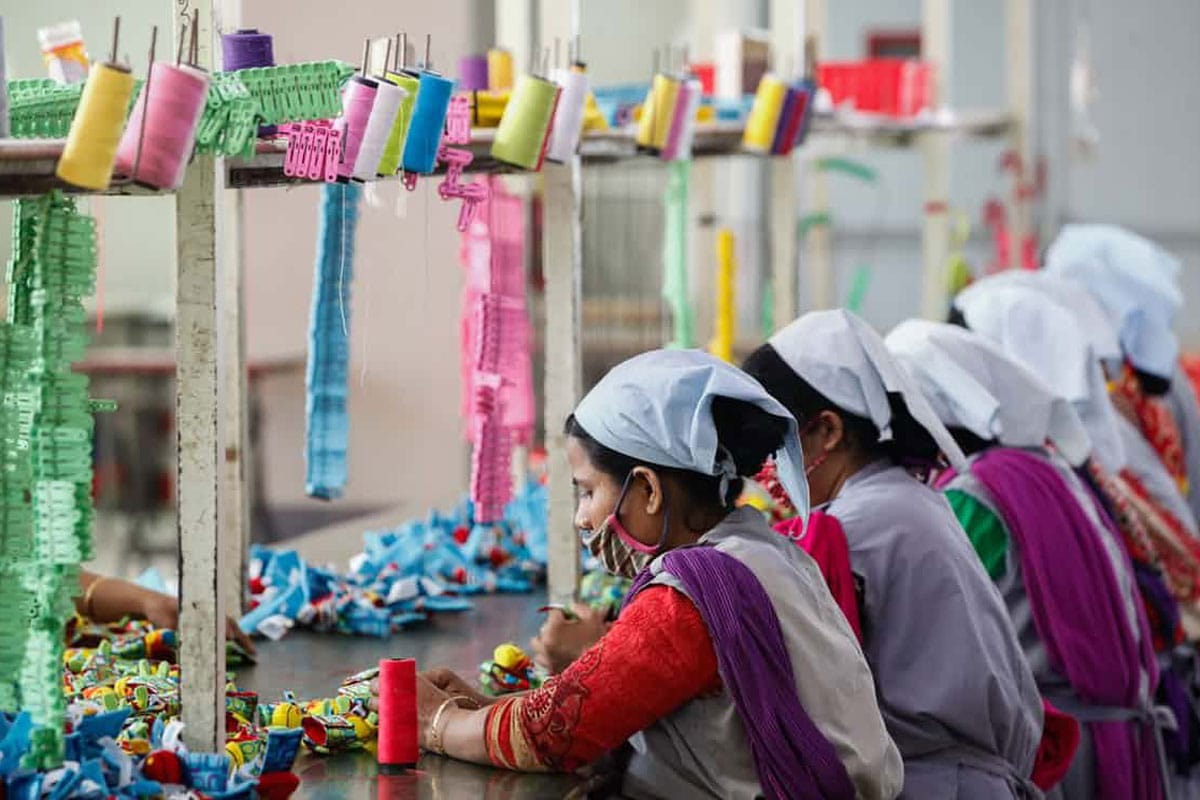
Each year, leading international aid and development organisation Baptist World Aid Australia (BWWA) releases its annual Ethical Fashion Report – a comprehensive insight into the way local and international brands operate in a conscious-consumerist world. In 2020, however, BWWA has offered a fitting spin on its traditional approach, releasing instead the COVID Fashion Report.
While the focus is certainly still on sustainability and ethical business operations, this year's report centralises the information within a COVID-19 context; judging 428 of Australia and the world's most notable brands on the decisions they have made (or not made) during the global pandemic. Ditching their normal brand grading system, BWWA has instead implemented six main criteria benchmarks that determine and monitor how these brand's supported the most vulnerable and endangered workers in their supply chain throughout these times.
View this post on Instagram
Developed as an extension of the elements normally examined in the Ethical Fashion Report, the pandemic-specific criteria focuses on key actions that companies could feasibly continue to take, as well as those most imperative to ensure safe working conditions for employees. These were, supporting workers’ wages by honouring supplier commitments, identifying and supporting the workers at greatest risk, listening to the voices and experiences of workers, ensuring workers’ rights and safety are respected, collaborating with others to protect vulnerable workers and rebuilding better for workers and the world.
With all this in mind, how exactly did some of your favourite homegrown brands fare?
Australian companies that had shown evidence that their actions covered all areas of the COVID Fashion Commitments included Country Road, The Iconic and Kathmandu; sitting alongside international brands like UNIQLO, Nudie Jeans Co and New Balance.
View this post on Instagram
Despite the demand for transparency in such an evolving industry, 27 of the 428 brands accessed provided no evidence of actions taken to meet these commitments. Further to this, while this year's report revealed that more than 70% of companies assessed could demonstrate some commitment to assisting their vulnerable garment workers, only 14% of all companies had projects in place to improve wages in the majority of their factories.
As explained in the COVID Fashion Report, 50 million garment workers across the world experienced a loss in wages in the early months of 2020, totally to $8.2 billion AUD. In May, more than 30% of garment manufactures in Bangladesh reported that their children had gone without food.
“Fashion companies have been literally fighting for survival in 2020. But the wellbeing of the workers who produce the garments they sell must still be considered a core priority. Survival is critical, but it should not be achieved on the backs of their most vulnerable workers,” said BWAA CEO John Hickey.
If you've ever wondered where other Australians stand on the importance of ethical supply chain management, the answer is a clear. From researched commissioned by BWAA prior to the coronavirus outbreak, more than 80% of Australian consumers agreed that fashion companies have an ethical responsibility to their workers and the supply chain.
“It’s important that Australian consumers know the choices they make in-store or online have the power to pass on opportunity and dignity to workers, and sustainability to our world,” Director of Advocacy at BWAA, Peter Keegan, shared.
“We found 82% of Australian consumers wanted to see clothing companies pay workers fairly. We know that Australian consumers are interested and concerned about these things.”
To read the full report, head to the BWAA website.
Image: Pinterest



